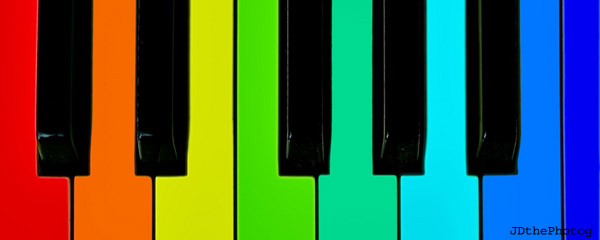
photo by JDthePhotog
by Jonathan Taylor
*
All art constantly aspires to the condition of music.
~ Walter Pater, The Renaissance
Over the last 250 years, thousands of short stories, novellas and novels have explored musical themes, or revolved around musical characters. The late-eighteenth and nineteenth centuries, particularly, are full of such stories and characters. Wackenroder’s ‘Joseph Berlinger’, Hoffmann’s tales, Poe’s fiction, Balzac’s musician ‘Gambara’, Dickens’ The Mystery of Edwin Drood, Hardy’s stories, Du Maurier’s Trilby, Leo Tolstoy’s Kreutzer Sonata, they all include musical images, themes and characters. No doubt this literary fascination with music and the figure of the musician originates in their Romantic elevation to the highest spiritual realms by philosophers like Schopenhauer and Pater, and real-life musicians like Richard Wagner. As the German philosopher Friedrich Nietzsche writes in On the Genealogy of Morals:
With this extraordinary inflation in the value of music, which seemed to follow from Schopenhauer’s philosophy, the musician too suddenly rose in value: from that moment on he became an oracle, a priest, even more than a priest, a sort of spokesman of the ‘in itself’ of things … from that time on he ceased to talk just music, this ventriloquist of God – he talked metaphysics.
No doubt some things have changed since Nietzsche wrote this in 1887, but the fascination in fiction with music and musicians remains. There are numerous twentieth- and twenty-first-century authors who write about music and musicians, from Thomas Mann and Anthony Burgess, to Roddy Doyle, Rose Tremain, and Nick Hornby; there are whole anthologies of 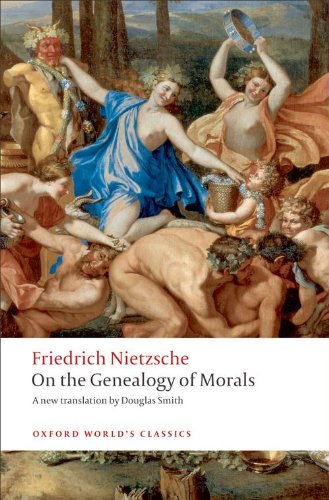 stories about music, such as those edited by Peter Wild, and inspired by The Smiths and The Fall; there is even a publisher in New York, Coral Press, which specialises in publishing ‘musical fiction’.
stories about music, such as those edited by Peter Wild, and inspired by The Smiths and The Fall; there is even a publisher in New York, Coral Press, which specialises in publishing ‘musical fiction’.
There is arguably a difference, though, between earlier and later portrayals of musicians in fiction: Thomas Mann’s composer in Doctor Faustus cuts a very different kind of figure to some of the more idealised portrayals of musicians in Nietzsche’s high-Romantic era. Wagner’s posthumous association with Hitler and Nazism, coupled with his own egotism and avowed anti-Semitism, have inevitably had their effects on later fictional musicians. Arguably, one such effect is a disillusioned, and partly self-conscious, turning away from perceived Romantic ‘high’ cultural models of music and the musician – so that many writers of the later twentieth-century preferred to focus on ‘popular’ music and musicians of one kind or another.
Of course, this survey is all rather generalised, and history never quite works in such a linear way. The emphasis on ‘popular’ culture, and the corresponding suspicion of musicians and musical power, was actually with us long before – in the nineteenth-century fiction of Poe, Balzac, Du Maurier, and Hardy. Conversely, the later twentieth- and twenty-first centuries have not entirely turned away from earlier idealisations of music either; Vikram Seth’s writing, for example, owes a great deal to Romantic conceptions of music, translating Schubert’s or Bach’s music into the rather blunter medium of the English language.
Many fiction writers have attempted this – to write musical fiction which is not just about music, but which somehow echoes that music within the constraints of written prose. This is the kind of musical fiction which interests me, and which I try to write myself. That is, fiction which is not just musically themed, but which, in its style, its punctuation, its cadences and its imagery, attempts to capture the strange and elusive narratives of music. Not just any music, or music in general, but the particular music with which the fiction is concerned – whether that music is Stockhausen or The Smiths, Puccini or Piaf.
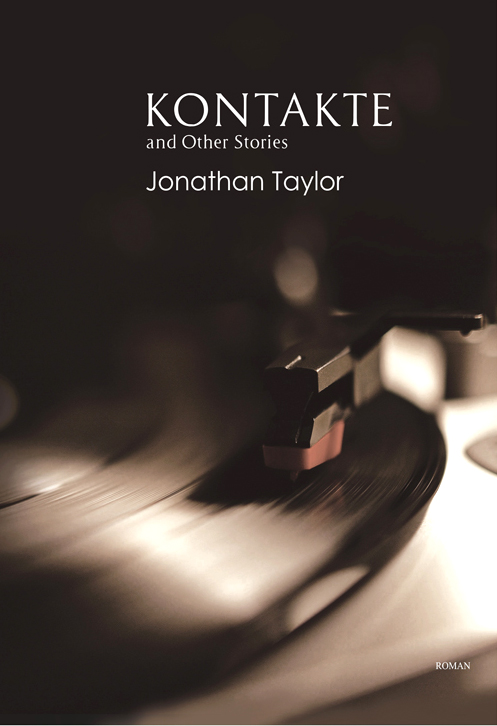 Short stories, I think, are particularly good at this, partly because the time taken to read a short story is often similar to the time taken to listen to a piece of music; one can mirror the narrative structure of the other quite closely. It is also partly because the stylistic techniques of echoing music in a narrative might become tiresome over longer reading periods. The very compression and intensity of short fiction means that it lends itself more readily to the portrayal and simulation of music.
Short stories, I think, are particularly good at this, partly because the time taken to read a short story is often similar to the time taken to listen to a piece of music; one can mirror the narrative structure of the other quite closely. It is also partly because the stylistic techniques of echoing music in a narrative might become tiresome over longer reading periods. The very compression and intensity of short fiction means that it lends itself more readily to the portrayal and simulation of music.
No doubt in the use of certain stylistic techniques, musical fiction often comes very close to poetry, which, after all, self-consciously uses ‘musical’ elements of language as part of its repertoire. Like poetry, musical fiction will often use alliteration, assonance, onomatopoeia, rhythm, allusion, refrains, even rhyme, to simulate the music it is describing. And the more like poetry it becomes, the more musical fiction inevitably starts to bend and then break some of the basic rules of prose, such as conventional uses of grammar, punctuation, lineation and paragraphing. To attempt to describe music, to encapsulate its fluid structures and timbres, it would often seem necessary to write in a more fluid, flexible, poetic way, and examples of this kind of poetic prose abound in musical fiction.
However weak we may feel that words are in comparison to music, many composers have struggled in the opposite direction to that of writers, attempting to connect their art form with written language: Schubert’s songs; Wagner’s Gesamtskunstwerk; Berlioz’s, Liszt’s and Strauss’s tone poems and symphonies, and many other programmatic works. All appropriate written narratives and texts, and each of these musicians has attempted to shape a narrative into music. This act of shaping material from words into music had – and maybe still has – the same kind of distorting effects on musical language as the reverse has on written language. The nineteenth- and early twentieth-century composers most credited with writing music informed by written texts are the same composers who are usually credited with stretching, bending and sometimes even breaking conventional musical language. It would seem that the very attempt to cross between different art forms necessarily distorts, bends, breaks and transforms the languages of those art forms. But then, I believe that this is precisely what artists of all kinds, whether musicians, short-story writers, novelists or poets, should be attempting to do – challenging, subverting and reinventing the conventional languages of their chosen art forms.
~
Jonathan Taylor is author of the forthcoming short story collection, Kontakte and Other Stories (Roman Books, 30 July 2013). All the stories in the collection are ‘musical fictions.’ He is also editor of the anthology Overheard: Stories to Read Aloud (Salt, 2012), winner of the Saboteur Award for ‘Best Fiction Anthology 2013,’ and author of the novel Entertaining Strangers (Salt, 2012), the memoir Take Me Home (Granta, 2007), and the poetry collection Musicolepsy (Shoestring Press, 2013). He is Senior Lecturer in Creative Writing at De Montfort University. Originally from Stoke-on-Trent, he now lives in Leicestershire with his wife and twin daughters. His website is www.jonathanptaylor.co.uk
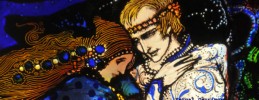
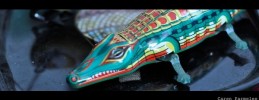
Very interesting piece. Thank you. I love the idea of writing a story that works with piece of music, quite a challenge. What would one choose? Movement from a Janacek or Bartok string quartet would be amazing. The creative process is perhaps not unlike composers who write for film. I wonder if Jonathan reads his stories with the music.
Thanks for the response – really appreciated. I think writing in response to “absolute” music is often harder than ostensibly “programme” music (or music, for that matter, with lyrics). I have performed one of my stories with the music (Stockhausen’s “Kontakte”) in the past, though I have to admit that I no longer do so: maybe because they’re both separate works in themselves, it doesn’t always come off. Both the music and the story end up competing for attention – and they both, in a sense, need 100% attention, so it can just be distracting to overlay one on the other. That’s not to say you couldn’t – and people have – write a story which properly intertwines with a piece of music. I can think of various examples of this kind of thing, and would love to experiment with that in the future.